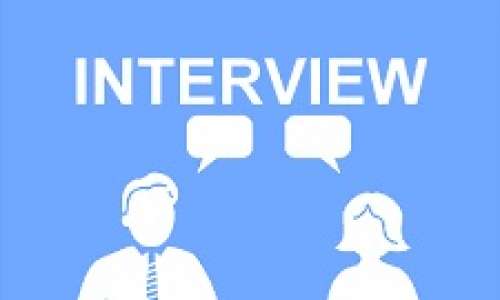PRESENTING YOURSELF IN PERSON: MASTERING THE JOB INTERVIEW
Once you’ve gotten an invitation to interview, you’ve already impressed the potential employer on paper. To present yourself well in the interview and to make a good impression, you should:
§ Plan to articulate how you meet the employer’s needs
§ Four ways to get ready for the big day
§ Put together your Interview Tool Bag
§ Be your most authentic professional self
§ Follow other interview dos and don’ts
Plan to articulate how you meet the employer’s needs
You probably spent a lot of time working with the job description when you put together your cover letter and resume. Now that you’ve gotten an interview, you’ll want to review it — pay close attention to the qualifications and job duties — these are essentially lists of the employer’s needs.
For each qualification or duty, identify a skill that the employer is asking for. For example, if the job duty is to “recruit volunteers,” related skills might include:
§ identifying organizational need for volunteers
§ drafting volunteer position descriptions
§ marketing the volunteer opportunities
§ communicating with potential volunteers
§ selecting volunteers
Your task, as the job candidate, is to prepare anecdotes about a specific time that you used these skills. You can use a format recommended by Pam Rechel at Brave Heart Consulting: name the skill, identify a specific time you used it, and explain how the skill will be useful in the new job.
Four ways to get ready for the big day
Research the organization
What is their mission? How does it distinguish itself from others working on similar issues or with similar clientele? What is the geographic scope of the organization? How is it funded? What buzz words do you notice when you read the organization’s website?
Type up talking points
For example, the anecdotes that illustrate your most salient skills. It’s fine to bring in notes to the interview with you.
§ Bring your notes, additional copies of your resume and work samples to leave behind in a neat padfolio.
Figure out how to answer common interview questions
Here are a few:
§ Tell me about yourself. Don’t assume the hiring team remembers the details of your resume; summarize your accomplishments, work, and passions in a few key sentences.
§ Why do you want to work for our organization?
§ Why do you want this position?
§ What are your strengths and weaknesses?
§ Can you tell us about a time you used the skills necessary in this position?
Prepare your own questions
Just like a limp handshake, a one-sided interview is no fun! The hiring team wants to hear your questions and see that you’re actively engaged in learning more about the organization and position.
§ When you research the organization and position, write down unanswered questions that arise for you and ask them during the interview.
§ Ask about the context and history of the position, what daily tasks and activities are involved, how the position is managed, what the rest of the hiring process looks like, and anything else you’re curious about. (See the Idealist Guides to Nonprofit Careers for more.)
§ Plan to ask the most important questions — like how does the open position help the organization fulfill its mission — as early as possible during the interview. During second interview and later, you should avoid asking questions that cast doubt on your understanding of the position.
Put together your Interview Tool Bag
Don’t leave bag-packing to the last minute. Prepare your Interview Tool Bag the night before the big day:
§ Tissues or a handkerchief
§ Copies of your resume and work samples
§ Breath mints (not gum)
§ Bottle of water
§ Directions including address, parking information, suite or office number, floor number, and contact information including name and phone number (but keep your phone on silent during the interview!)
§ Notes (talking points, anecdotes, questions!)
§ Note paper and pen to take notes if you need to
Be your most authentic professional self
…So you and the hiring team can both assess your mutual compatibility.
Pay attention to the signals that your body language and eye contact send to the hiring team. It’s okay to be a little nervous (and even to show it — it means you care!). But try to relax and be yourself. Let your personality shine so that the hiring team glimpses who you truly are. If you have a sense of humor, use it to chuckle (appropriately, of course) or express an idea occasionally.
Your hiring manager may ask questions that seem trivial — for example about a foreign country mentioned on your resume, or about pets. In fact they may be attempting to get to know you better on a personal level, to find out whether you will be someone they’d like to see in the office everyday.
A few other interview dos and don’ts
§ Arrive a few minutes early
§ Remember the names of the hiring team
§ Ask for clarification if you don’t understand a question
§ Answer the questions you’re asked as best you can, and ask whether you answered sufficiently if you’re unsure
§ Pause if you need time to think
§ Send a thank-you note or email as soon as possible that addresses specific and relevant issues you discussed during the interview
§ DON’T assume the hiring team remembers your resume
§ DON’T talk incessantly
§ DON’T discuss salary and benefits if you can avoid it (till you get the job offer)
§ DON’T beg for the job
§ DON’T wear strong scents
§ DON’T dress or behave too casually


.jpg)
